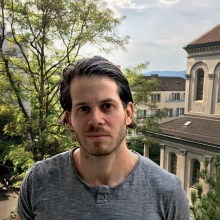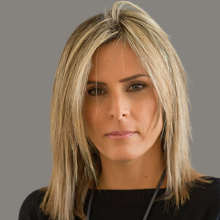Combating campus antisemitism
Features

By Prof. Michal Neeman, Department of Immunology and Regenerative Biology
Following the brutal Hamas attacks on southern Israeli communities on October 7, we witnessed an alarming rise in manifestations of anti-Israel and antisemitic sentiment on campuses worldwide, particularly on liberal progressive campuses in the United States and Europe.
Given the appalling silence of academic leadership in response to both the Hamas atrocities and growing antisemitic rhetoric on their campuses, we launched the October 7 Academic Work Group, comprising over 80 scholars from all universities in Israel, several colleagues from other countries, and a wide range of academic disciplines. We focused on academic leadership, professional organizations and societies, and leading universities. In contrast to the shallow and misleading information propagated by social media, we aimed to provide high-quality information backed by credible sources.
The Work Group addressed many topics, emphasizing the crucial role of thorough dialogue in understanding complex issues. We called for courage in academic leadership to ensure safe academic activities and freedom, the value of academic discourse for finding avenues for conflict resolution, the importance of recognizing ideologies that threaten liberal democracies, and the significance of recognizing the immense humanitarian crises in both Israel and the Gaza Strip and the role Hamas continues to play in aggravating them.
We analyzed and highlighted the multiple fallacies in the progressive left’s depiction of Israel as a colonial white entity oppressing an indigenous minority of people of color. We called for a return to the values of universal liberal equality as preached by Martin Luther King Jr. and by the Declaration of Independence of Israel—and then contrasted them with the contents of the Hamas charter.
We called on our colleagues to reject academic boycotts as a direct contradiction to the value of open dialogue and to maintain campus safety for all as a prerequisite for enabling true and deep discourse. We also called for a creative academic endeavor to formulate strategic planning so that the current crisis will eventually culminate in a peaceful resolution.
In all these efforts, our primary target audience is academics who remain our colleagues and friends. Based on the responses we received, we recognized the importance of our work in empowering our colleagues to take an open and brave stand, supporting academic collaboration, and rejecting calls for boycotts. These colleagues who continue to support Israel’s right to thrive, even when fiercely objecting to some of the actions or inactions of the current Israeli government, are important for securing the future of Israeli academia.








